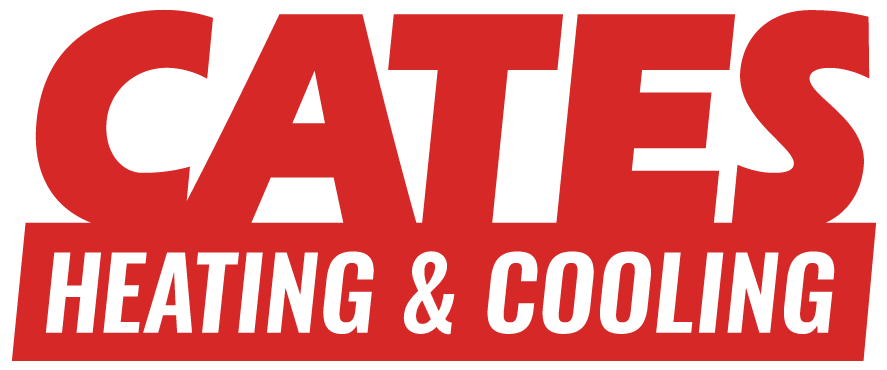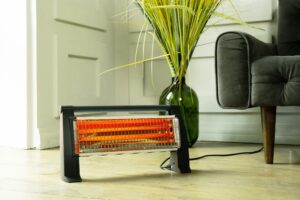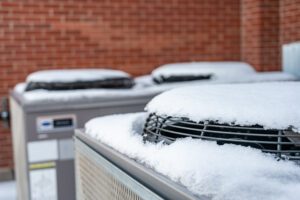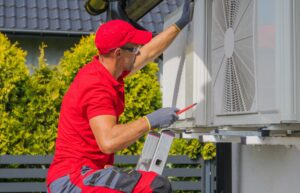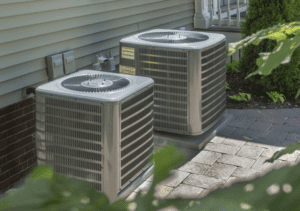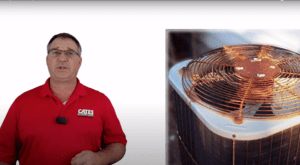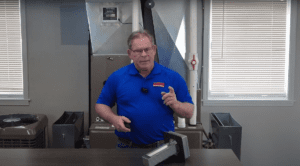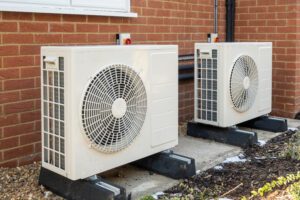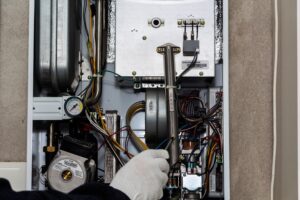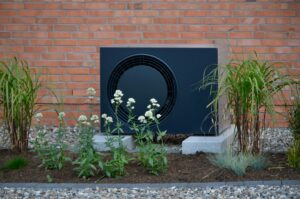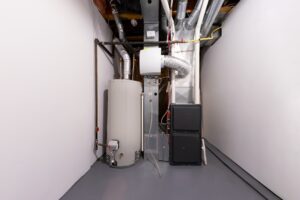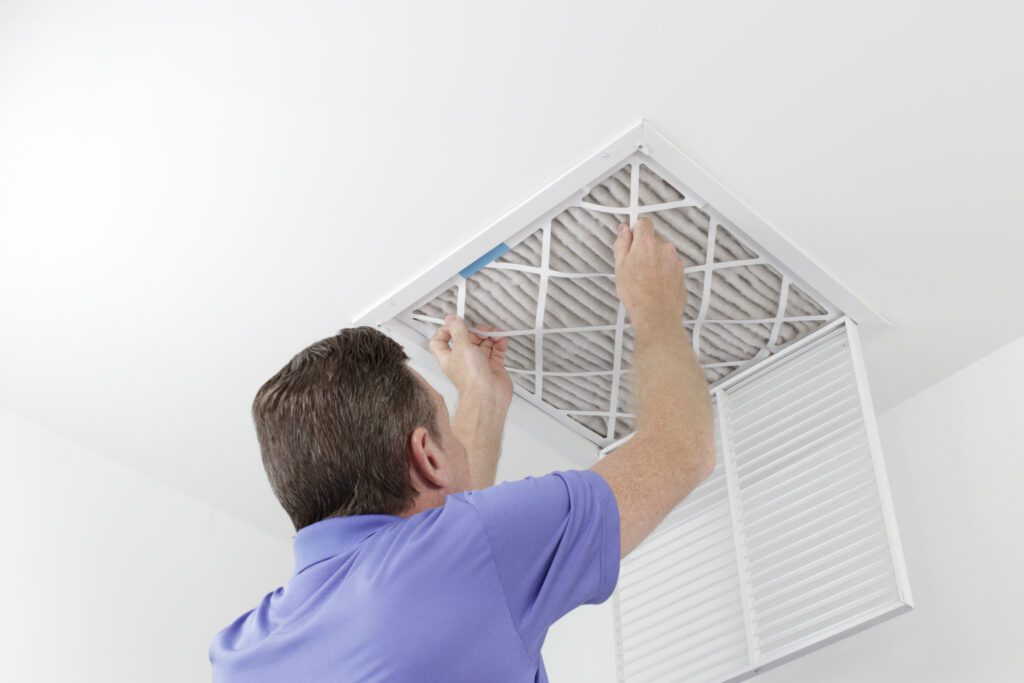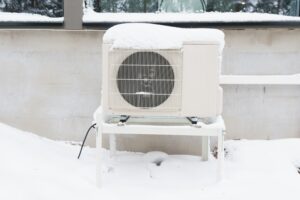You probably don’t think much about changing your air filters, but ignoring your air filters can cause more issues for your home than you realize. When your air filters get dirty and clogged, your HVAC system can be less effective, your air quality might suffer, and your energy bills can rise.
Regularly changing an air filter can help reduce stress on the HVAC system, reduce your energy bills, make the temperature more comfortable, and even improve your overall health by improving your air quality.
Changing your air filters is an essential practice for clean air circulation. However, most homeowners don’t know why air filters require changing frequently. Keep reading to learn why changing your air filters is essential and how often to change air filters.
Why Frequently Changing Your Air Filters Is Important
Air filters are often used in a home’s HVAC system and play a massive role in maintaining indoor air quality and temperature.
An air filter in your air conditioning system ensures that the air in your home is free from harmful bacteria, viruses, and dust by cleaning the air that the unit blows into your home. Air filters also remove pollen, dust, and other small particles from the air circulated by the heating and cooling system.
So, why do air filters need to be changed? First, changing your air filter is essential because having a well-functioning HVAC air filter traps any airborne contaminants that would have otherwise circulated throughout the house.
Problems Associated With Dirty Air Filters
If you don’t maintain and change your air filters, you might encounter various problems associated with dirty air filters.
Allergies and Respiratory Problems
An air filter prevents the circulation of dust and debris in the air, and when your air filter gets dirty or clogged, your indoor air quality might suffer. In addition, according to the EPA, people with allergies and respiratory conditions like asthma can be affected by dirty air filters because their lungs are more sensitive to debris and dust particles.
When your air filter doesn’t function effectively, indoor air quality will have allergens like house dust, mold, pet hair, bacteria, and other airborne particles. Unfortunately, poor indoor air quality can sometimes cause severe health issues like asthma attacks.
Regularly changing your air filter ensures that it remains functional and helps reduce health risks from some airborne contaminants – small liquid or solid particles suspended in the air. It could be light spray mists or simply household dust.
Higher Heating and Cooling Costs
Not maintaining your HVAC air filter causes clogs due to dust and particles. When your air filter gets clogged, your HVAC system will have to run longer to maintain the temperature in your home. As a result, energy use will skyrocket along with the overall household energy bills.
Changing your HVAC air filter helps ensure indoor air circulates efficiently and your system doesn’t consume added energy. The less energy your HVAC system consumes, the more you’ll save on energy costs.
Risk of Overheating or Cooling
A dirty or clogged air filter can lead to dirty cooling coils and fan blades. The dirty coils and fan blades can restrict the free flow of cold air, making it build up in the air conditioner. Over time, the cold air builds up, eventually forming ice on coils.
The build-up of frost on your unit reduces the ability of your air conditioning unit to cool the air. In addition, adding stress to your heating and cooling system can cause the breaking down of the motor, or your system could risk overheating.
Uneven Heating and Cooling
When you don’t change your air filters, they become dirty and clogged, restricting airflow in your home. You’ll know that the airflow is restricted when you start feeling cold or hot spots throughout your house.
Your comfort is probably the whole reason for installing a central AC unit, which is affected when your air filters clog and can’t work efficiently. Changing your air filters frequently is essential because if air can’t efficiently pass through them, you’ll experience uneven heating and cooling throughout your home.
HVAC Unit Failure
An HVAC system has to work harder and longer to pull air through a dirty and clogged air filter. The continuous strain on the HVAC system can lead to breakdowns. By changing your air filter and removing all the added stress on your heating and cooling unit, you can prevent breakdowns and help it last longer.
How Often Should I Change My Air Filter?
How often should you change air filters in your house? Ideally, most air conditioner manufacturers recommend changing an air filter every month, but Winslow suggests that you refresh your filter every quarter, which equates to four times a year.
However, most people prefer changing their air conditioner filters every two or three months. Ultimately, how often to change air filters will depend on various factors, including:
- Whether you have pets: Cats and dogs shed their hair, and changing air filters will keep the hair away.
- Whether you have young kids: Poor indoor air quality is detrimental to kids.
- Does anyone in your household have allergies or asthma? A home that has someone with asthma or allergies to dust and other particles will need frequent air filter changes to maintain clean air circulation.
- The size of your home: Air conditioners in small homes pump less air, which might require less-frequent air filter changes.
- The rate you use your HVAC system: If you have a temperate climate and only use your HVAC unit a few hours a day, you won’t need constant filter changes.
How Can I Tell When My Air Filter Needs to Be Changed?
Using your air filter will definitely lead to the accumulation of dirt – that’s an air filter’s job, anyway. So, how do you tell that your air filter needs to be changed?
There’s no specific guideline to determine if your air filter needs to be replaced. However, if the air filter shows a visible coating of dirt that is adequately thick to cover the filter material itself, that’s a clear indication that you need to change your air filter. Changing your filter doesn’t require an expert; all you have to do is check your documentation to know the size of the filter your unit needs.
Let a Professional HVAC Company Handle Your Air Conditioning Repairs and Maintenance
Are you looking for professional HVAC experts in your area? Don’t wait for your air conditioning unit to break down before you look for help. Our HVAC experts at Cates Heating and Cooling will help you with all your inspection and repair needs.
Contact us today to book an appointment for Cates HVAC servicing, or better, Cates’ complete protection package. In addition, Cates Heating and Cooling offer financing and maintenance programs, so you can conveniently get a complete care maintenance schedule and avoid unplanned breakdowns.
